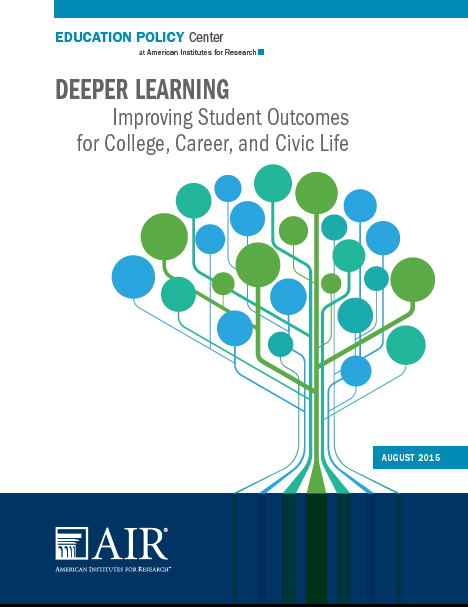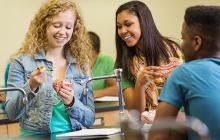Deeper Learning: Improving Student Outcomes for College, Career, and Civic Life
The Issue
To prepare for the demands of postsecondary education and the workforce, students need to master content and build skills that allow them to collaborate with  others, and then apply that knowledge to new situations. Students will be able to access a wider range of opportunities in college, career, and civic life if they possess the necessary skills to work with others and critically analyze and address new challenges.
others, and then apply that knowledge to new situations. Students will be able to access a wider range of opportunities in college, career, and civic life if they possess the necessary skills to work with others and critically analyze and address new challenges.
The Research
Deeper learning combines a deeper understanding of core academic content, the ability to apply that understanding to new situations, and a range of competencies related to human interaction and self-management. A recent study by AIR found that students in high schools that were part of networks associated with the William and Flora Hewlett Foundation’s Deeper Learning Community of Practice performed better than similar students in comparison schools on a range of measures. These included test scores, measures of interpersonal and intrapersonal skills, on-time high school graduation rates, and college enrollment rates.
The Options
Given the promising results of this study and other efforts to bring deeper learning to scale, states should consider instituting strategies to increase opportunities for all of their students to develop deeper learning competencies. Policymakers can support deeper learning through a range of policy options, including building teacher capacity, promoting innovation and personalization, and enabling greater flexibility at the local level.

